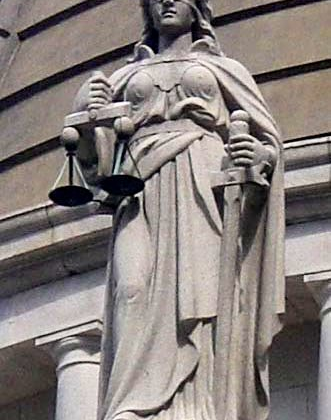

ChvhLR10
Over the next few weeks, we continue to feature the winners of this year’s Zenger Prize. What is this prize and why does it matter? See Marvin Olasky’s introduction and explanation.
If a teacher tired of grading papers decided to fail five students without even reading their work, parents would demand an investigation. But eight judges of Louisiana’s 5th Circuit decided to do something far worse. From 1994 to 2007 they turned down, without even reading them, 5000 petitions from poor prisoners—and only last year did a reporter finally dig out the facts and tell the story.
Five thousand. It’s hard to believe, but writing for ProPublica, Anat Rubin proved that it happened and showed why. In 1994, the Louisiana judges were tired of reviewing claims that prisoners too poor to hire a lawyer wrote themselves. Their language was often ungrammatical and their thinking sloppy. Why slog through a Louisiana swamp to find the occasional injustice? Why not cut to the chase and send the prisoner a brief, generic denial?
Rubin’s “The Scandal That Never Happened” last month won a Zenger Prize for telling the full story of the judges’ grievous pact. It began to surface in 2007 after Jerrold Peterson, a high-level court employee who had been tasked with disposing of the petitions, killed himself. Peterson confessed in his suicide note that the judges hadn’t read a single petition from a self-represented prisoner for 13 years. (The Sixth Amendment affords the right to an attorney at trial, but in “post conviction,” most incarcerated people must manage that process on their own.)
Rubin in her article first profiled Peterson, a married man, then looked at Karla Baker, an attorney who had a workplace affair with him. On the day Peterson committed suicide, he also sent her an email sketching out the judges’ wrongdoing. Baker—not eager to get involved in Peterson’s mess—reluctantly began to try to bring attention to the problem. She filed complaints with a state panel that investigates judicial misconduct, alerted the press, met with jailhouse lawyers, and filed a petition with the Louisiana Supreme Court, demanding an investigation.
Peterson had sent copies of the evidence to the Times-Picayune and Louisiana Judiciary Commission, but none of the judges faced prosecution or discipline—hence Rubin’s headline, “The Scandal That Never Happened.” The investigative panel acknowledged a handful of procedural errors, but otherwise deemed the 454 denials correct. The Times-Picayune and other regional media lost interest in the story after minimal reporting.
Rubin told me these 5th Circuit Court justices did officially what many other courts do unofficially: “The lack of outrage that followed these revelations in the story about what these judges had done seemed to indicate that this was a much bigger problem than one courthouse in Louisiana and maybe than all the courthouses in Louisiana. Despite decades of evidence showing us that we frequently get it wrong in the criminal justice system, we somehow assume that we can’t make a mistake. Once someone’s been convicted, we throw away the key. And I found that to be terrifying.”
Some of Rubin’s main characters had checkered pasts. She said that’s true to life: “My editor, who’s sort of a master storyteller, would joke that we had a story told through three flawed characters. What attracted me to each of them is that we are all flawed characters, and we’re all a mixed bag. And here are these people who had made mistakes, but also had these moments in their lives where they were really trying to do something good.”
One of Rubin’s characters, former federal law clerk Haller Jackson IV, was imprisoned for soliciting sex from a minor. Jackson, a child of privilege with an impressive law resume and particular expertise in post-conviction law, decided to spend his time behind bars helping poor prisoners. Leveraging his connection to a former legal associate, Jackson’s efforts brought the 5th Circuit issue—via one particular prisoner, Louie M. Schexnayder Jr.—before the U.S. Supreme Court.
The Supreme Court refused to hear the case: Rubin wrote that Jackson heard the news, was silent for a long time, and then said, “Well, they got away with it.” Nevertheless, Rubin noted that “Jackson found lawyers to represent dozens of prisoners and worked with legal nonprofits to reduce the sentences of more than 100 people.”